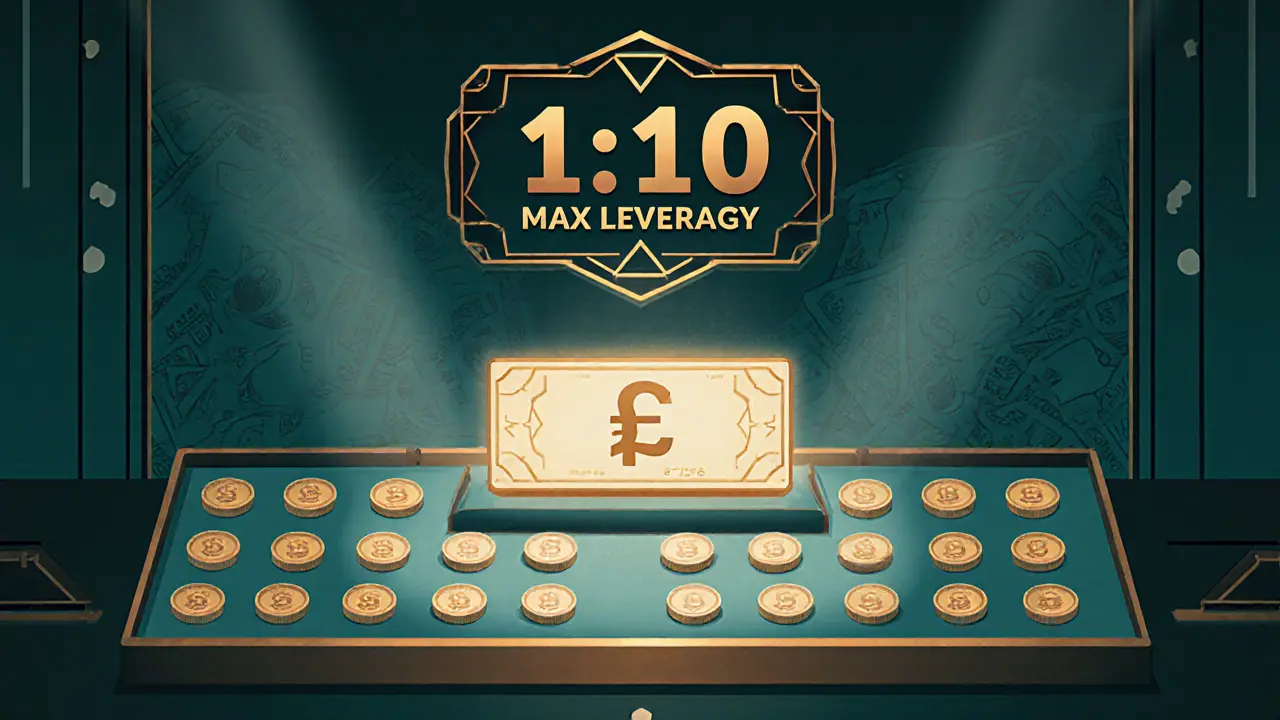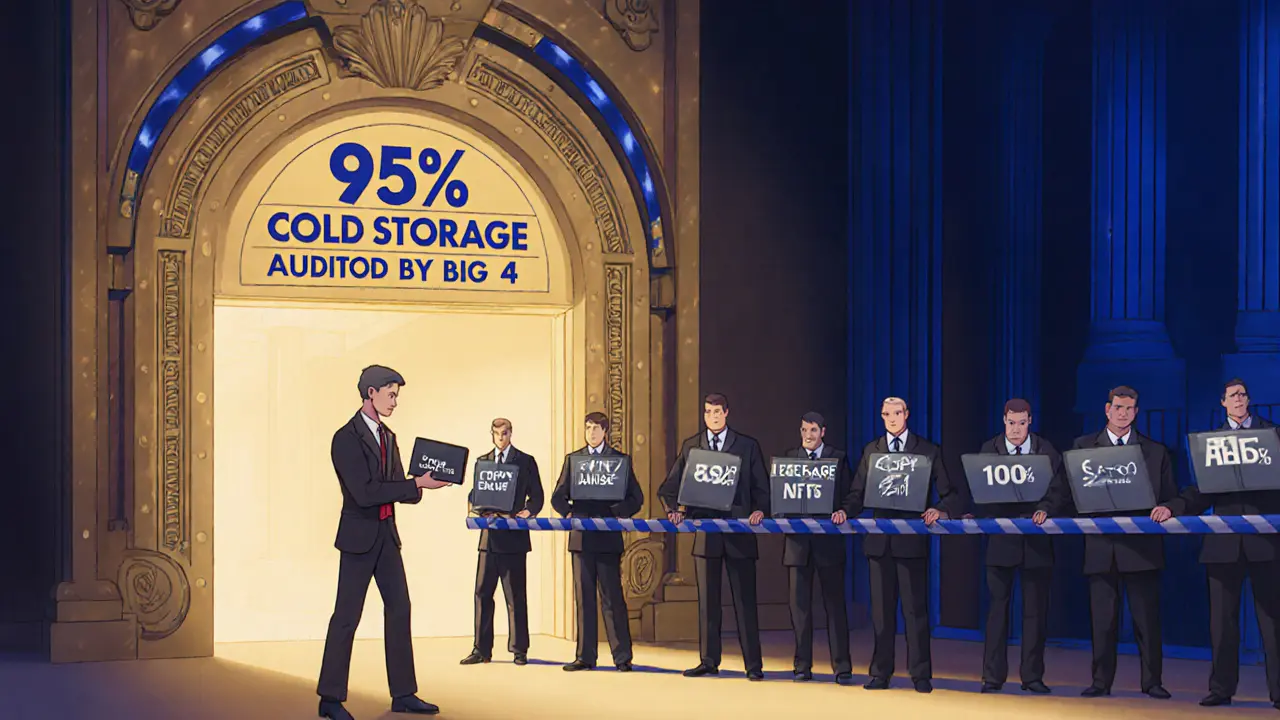HashKey Withdrawal Fee Calculator
Calculate Your Withdrawal Costs
Estimate fees and processing times for HKD or USD withdrawals based on your transaction.
When you're looking for a crypto exchange that plays by the rules, HashKey Exchange stands out - but not because it’s flashy, fast, or full of coins. It stands out because it’s one of the few crypto platforms in Asia that actually has a government license. If you care about safety over speed, compliance over chaos, and legitimacy over leverage, this exchange deserves your attention. But if you want 300+ coins, 100x leverage, or a trading bot that runs while you sleep, you’ll walk away disappointed.
Who Is HashKey Exchange For?
HashKey Exchange isn’t built for casual traders or meme coin hunters. It’s built for people who need to prove they’re not laundering money - and for institutions that can’t touch unregulated platforms. Founded in 2019 and headquartered in Hong Kong, it became one of the first exchanges in the region to get a full trading license from the Hong Kong Securities and Futures Commission (SFC) in 2023. By 2025, it was ranked #14 on Forbes’ list of the world’s most trustworthy crypto exchanges, scoring 4.9 out of 5 for compliance, transparency, and asset security.This isn’t luck. HashKey passed audits by Big 4 accounting firms, keeps 95% of assets in cold storage, and has never had a major breach. Its user accounts are segregated from company funds. Every transaction uses SSL encryption. If you’re in Hong Kong, Singapore, or another jurisdiction where regulators demand proof of legitimacy, this is one of the few platforms you can legally use without risking your license or reputation.
What You Can Trade
Don’t expect to find Solana, Dogecoin, or hundreds of altcoins here. HashKey supports only 26 cryptocurrencies - a fraction of what Binance or Kraken offers. The list includes Bitcoin, Ethereum, USDT, USDC, and a few major tokens like Polygon and Chainlink. That’s it.Why so few? Because HashKey doesn’t list coins unless they meet strict regulatory standards. Tokens with unclear governance, anonymous teams, or unverified audits get rejected. This isn’t a weakness - it’s a feature for users who want to avoid scams. But if you’re chasing the next 100x coin, you’ll need to look elsewhere.
For trading pairs, you get 107 spot pairs and 53 futures pairs. The big differentiator? Hong Kong Dollar (HKD) trading. Very few global exchanges let you deposit or withdraw HKD directly. If you’re based in Hong Kong, this saves you currency conversion fees and delays. USD is also supported, but HKD is the real advantage.
Fees and Deposit/Withdrawal Limits
Depositing crypto is free. Withdrawals are free too - as long as you’re moving crypto. No hidden fees. Transactions clear in under 10 minutes, according to user reports and platform data.Fiat withdrawals? That’s where it gets messy. HashKey charges fees for HKD and USD withdrawals, and users report delays of up to 3-5 business days. Some have complained about being asked for extra documentation or even paying $362 in “compliance fees” just to get their money out. These aren’t isolated cases - multiple Trustpilot reviews describe similar experiences.
Trading fees follow a tiered VIP system based on 30-day trading volume. Maker fees start at 0.08%, taker fees at 0.1%. High-volume traders can drop below 0.05% for makers. That’s competitive - but not the cheapest. Binance and Bybit often beat these rates for active traders.
HashKey’s native token, HSK, gives you discounts on trading fees and rewards for referrals and staking. But it’s not a major player in the market. You won’t find HSK listed on most major DeFi platforms, and its liquidity is thin. It’s a utility token, not an investment.

Security and Compliance
This is where HashKey shines. It’s not just licensed - it’s audited, monitored, and accountable. The SFC requires ongoing reporting, real-time transaction monitoring, and strict KYC. Every user must verify their identity. No exceptions.Security features include:
- Multi-signature cold wallets
- SSL encryption for all traffic
- Two-factor authentication (2FA)
- Insurance coverage for digital assets
- Regular penetration tests by Big 4 firms
No exchange is 100% hack-proof, but HashKey’s track record is clean. No public breaches. No stolen funds. No regulatory fines. That’s rare in crypto.
But here’s the catch: it doesn’t have facial recognition, biometric login, or advanced behavioral monitoring. These are features you’ll find on Coinbase or Kraken. HashKey meets the baseline - but doesn’t exceed it. For most users, that’s enough. For high-net-worth traders, it might feel dated.
Trading Tools and Platform Experience
The platform is clean. Simple. Functional. But it’s not powerful.You get:
- Basic charting tools (no advanced indicators)
- API access for institutional clients
- Mobile app with push notifications
- Limit, market, and stop orders
What’s missing?
- Copy trading
- Trading bots
- Options trading
- NFT marketplace
- Margin trading above 1:10 leverage
Levage is capped at 1:10. That’s half of what most competitors offer. If you’re a day trader or scalper, this will feel like driving a sedan when you need a race car. The interface loads slowly on mobile. Users report being logged out randomly, even when they’ve checked “remember me.” Customer service replies to complaints in over a month - if they reply at all.
For beginners, it’s manageable. For professionals? It’s a bottleneck.

Customer Support and User Experience
Support channels include live chat (24/7), email, and ticket system (available 8 AM-6 PM Hong Kong time). Live chat is fast - but only for simple questions. If you have a withdrawal issue, you’ll likely be pushed into a ticket system. And those tickets? They take weeks to resolve.Trustpilot reviews are split 50/50. Half of users praise the compliance and safety. The other half call it a “scam” because they couldn’t withdraw funds or were asked for extra fees. One user wrote: “They accused me of money laundering and demanded $362 to release my balance. Then they stopped responding.”
Is this common? Hard to say. But the pattern is enough to raise red flags. If you’re depositing more than $10,000, be prepared for extra scrutiny - and delays.
Who Should Use HashKey Exchange?
Use HashKey if:- You’re in Hong Kong or Asia and need HKD trading
- You’re an institutional investor or professional trader needing regulatory compliance
- You prioritize safety over speed or coin variety
- You’re tired of exchanges that vanish overnight
Avoid HashKey if:
- You want to trade 100+ altcoins
- You need leverage above 1:10
- You rely on trading bots or copy trading
- You’re in the U.S., Europe, or other regions where local exchanges are better supported
- You expect fast, responsive customer service
The Bottom Line
HashKey Exchange isn’t trying to be the biggest. It’s trying to be the most trusted. And in a market where 90% of exchanges have no license, no audit, and no accountability - that’s a rare win.If you’re a retail trader in Hong Kong looking for a safe place to buy Bitcoin or Ethereum with HKD, HashKey is one of the best options. It’s regulated, secure, and transparent. You won’t get the flashiest tools, but you won’t lose your funds to a hack or a scam.
If you’re a global trader chasing volume, leverage, or new tokens? Look at Kraken, Binance, or OKX. They’ve got the features. HashKey has the paperwork.
Choose compliance over convenience. Choose safety over speed. And if that’s what you need - HashKey Exchange delivers.
Is HashKey Exchange safe to use?
Yes, HashKey Exchange is one of the safest crypto platforms available. It’s licensed by Hong Kong’s SFC, uses cold storage for 95% of assets, undergoes regular audits by Big 4 firms, and has never suffered a major security breach. It also offers 2FA, SSL encryption, and asset insurance. While it doesn’t have advanced features like facial recognition, its compliance-first approach makes it significantly safer than unregulated exchanges.
Does HashKey Exchange support USD and HKD?
Yes. HashKey Exchange supports both USD and HKD for deposits and withdrawals. HKD support is rare among global exchanges and makes it ideal for users in Hong Kong. Crypto deposits and withdrawals are free and processed within 10 minutes. Fiat withdrawals carry fees and can take 3-5 business days to complete.
How many cryptocurrencies does HashKey support?
HashKey Exchange supports 26 cryptocurrencies as of 2025, including Bitcoin, Ethereum, USDT, USDC, and a few major tokens like Polygon and Chainlink. It deliberately avoids low-quality or unregulated tokens, focusing on compliance and security over variety. This is much smaller than exchanges like Binance or Kraken, which offer hundreds of coins.
Can I use trading bots or copy trading on HashKey?
No. HashKey Exchange does not offer trading bots, copy trading, or algorithmic trading tools. Its platform is designed for basic spot and futures trading with manual orders. Advanced traders looking for automation will need to use other platforms like Bybit, Binance, or KuCoin.
What’s the maximum leverage allowed on HashKey?
The maximum leverage on HashKey Exchange is 1:10 for futures trading. This is lower than most major exchanges, which often offer up to 100x leverage. HashKey’s conservative approach reflects its focus on regulatory compliance and risk management, making it unsuitable for aggressive day traders or scalpers.
Is HashKey Exchange available in the United States?
No. HashKey Exchange does not serve users in the United States, Canada, or most European countries. Its primary market is Hong Kong and select Asian jurisdictions. The platform restricts access based on IP location and KYC verification to comply with regional regulations. U.S. users should use exchanges like Coinbase or Kraken instead.
Why do some users say HashKey is a scam?
Some users report being asked to pay large fees (like $362) to withdraw funds, being accused of money laundering without clear evidence, or receiving no response after submitting support tickets. These are serious complaints, and while they may not represent the majority, they’re frequent enough to be a red flag. HashKey’s slow customer service and strict compliance procedures can feel like a scam to users unfamiliar with regulated financial systems. Always document your communications and be prepared for delays.




Ian Esche
November 27, 2025 AT 05:20HashKey is for suckers who think paperwork beats profit. If you're not trading altcoins or using leverage, you're just parking cash in a digital vault. This isn't investing-it's banking with blockchain branding. I'd rather risk a rug pull than waste time on a platform that treats crypto like a bank teller.
Shelley Fischer
November 28, 2025 AT 17:58While HashKey Exchange may lack the flashy features of its unregulated counterparts, its adherence to regulatory standards represents a commendable commitment to financial integrity. The absence of speculative tokens and the emphasis on institutional-grade security reflect a maturity often missing in this space. For users operating within compliant jurisdictions, this is not a limitation-it is a necessary safeguard.
Wilma Inmenzo
November 30, 2025 AT 04:2895% cold storage? LOL. Big 4 audits? They’re paid by the company, genius. And HKD withdrawals costing $362? That’s not compliance-that’s a ransom note. The SFC? Probably in bed with them. They’re not safe-they’re a slow-motion pump-and-dump with a license. They’ll freeze your funds, call you a money launderer, and vanish before you can say ‘KYC’.
priyanka subbaraj
November 30, 2025 AT 11:46They accused me of money laundering for withdrawing $12k. Took 27 days. They asked for my tax returns, my mom’s ID, and a video of me holding a newspaper. I cried. I lost money. I lost trust. I lost hope. This isn’t finance. This is psychological warfare.
Ben Costlee
December 1, 2025 AT 02:27I get why people hate the slow withdrawals and the limited coins. But let’s be honest-how many of us have lost everything because we picked the ‘fast’ exchange that vanished overnight? HashKey doesn’t promise excitement. It promises that your money won’t disappear while you’re sleeping. That’s worth something. Not everything. But something.
imoleayo adebiyi
December 2, 2025 AT 21:40In Nigeria, we don’t have access to regulated exchanges like this. So when I see a platform that actually follows the rules, I respect it-even if it’s not perfect. The delays and fees are frustrating, yes. But compared to the chaos of unregulated platforms here? HashKey feels like a breath of fresh air. Maybe it’s not for everyone, but it’s a step in the right direction.
Angel RYAN
December 3, 2025 AT 02:46Regulated means slower. Fewer coins means safer. No bots means no automation scams. If you want fireworks, go elsewhere. If you want to sleep at night, this is it. Simple.
stephen bullard
December 4, 2025 AT 20:32There’s a quiet dignity in choosing safety over spectacle. In a world where everyone’s chasing the next moon, HashKey is the guy who’s just building a solid house. It won’t win any design awards. But when the storm hits, it’s the only one still standing. Maybe we need more of those.
SHASHI SHEKHAR
December 6, 2025 AT 11:26Let me break this down for you guys-HashKey is like a Swiss bank that got into crypto. They don’t care about your memecoins or your 100x dreams. They care about AML, KYC, and audit trails. The 26 coins? They’re all listed on major exchanges, audited, and have real teams behind them. The HKD support? Huge for Asia. The withdrawal delays? Yeah, that’s the price of compliance. You think the SEC or FCA lets you pull cash out in 10 minutes? No. So if you’re complaining about 3-5 days, you’re not mad at HashKey-you’re mad at reality. Also, HSK token is useless, but that’s fine-it’s not supposed to be a gem, it’s a utility key. And yes, the interface is clunky, but if you’re trading $50k+, you’re using API anyway. So stop whining and appreciate the fact that this place won’t vanish tomorrow.
Vaibhav Jaiswal
December 7, 2025 AT 09:29Bro, I used to trade on Binance, then lost half my portfolio to a hack. Now I use HashKey. No drama. No memes. Just BTC and ETH. My wallet’s safe. My sleep is deep. I don’t need 300 coins. I need peace. 🙏
Abby cant tell ya
December 8, 2025 AT 16:33People still fall for this? ‘Oh it’s regulated!’ Yeah, so was Enron. And Bernie Madoff had a license too. You’re not safe-you’re just the next victim waiting for the paperwork to catch up.
Savan Prajapati
December 10, 2025 AT 15:15HashKey = boring but real. Everything else = flashy but fake. I pick real. No debate.
Joel Christian
December 12, 2025 AT 05:40i used hashkey and they froze my funds for 3 weeks becuase i sent 5k from coinbase and they said ‘suspicious activity’ lol. i just wanted to buy btc not get interrogated. now i use kraken. they dont care if i’m ‘laundering’ as long as the money clears. 😅
Brian Bernfeld
December 12, 2025 AT 10:51Look, I get the frustration with the delays and the lack of features. But let’s step back. In 2023, 90% of crypto exchanges had no license, no audit, no accountability. HashKey is one of the few that actually has a government seal. That’s not ‘boring’-that’s revolutionary. The $362 fee? That’s not a scam-that’s a compliance cost passed down from regulators. And yeah, it sucks. But it’s better than losing your life savings to a fake exchange that disappeared with $2 billion. This isn’t about speed or bells and whistles. It’s about surviving the next crash. And right now? HashKey is one of the only ones that might.